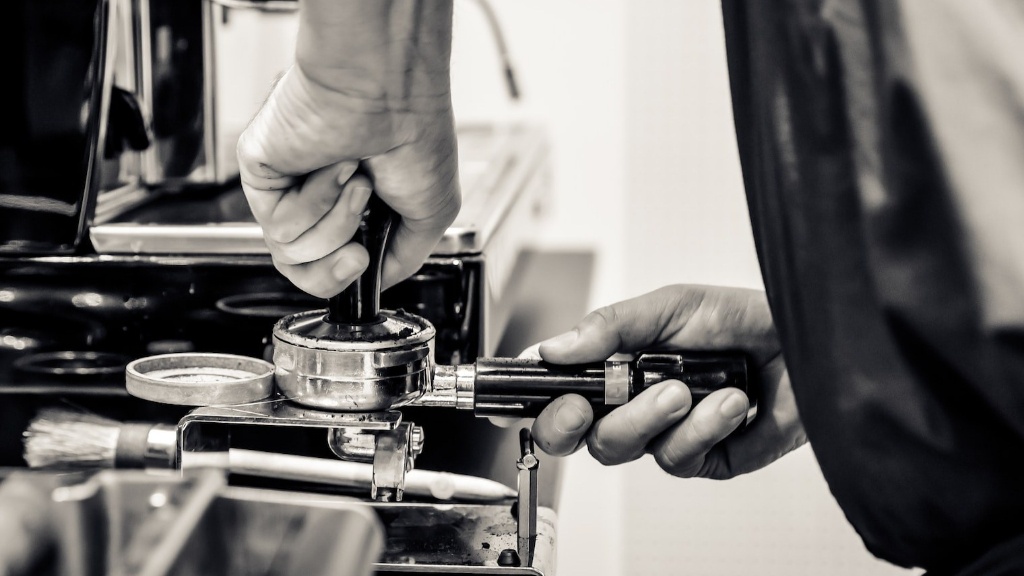Potential Health Risks For Pregnant Women Who Drink Coffee
When pregnant, many women are advised to give up coffee. But, with debate amongst professionals and conflicting studies, is it really necessary to go without? Is coffee really as bad as people make it out to be, or is it a healthier option than we believe it to be.
Caffeine is a stimulator and is present in many foods and drinks, including chocolate and soft drinks.The effects of caffeine ingestion during pregnancy remain unclear as to how much, if any, harm caffeine may be to you and your unborn baby and has been under much scrutiny since the 1950s.
Coffee is a commonly consumed hot beverage, particularly amongst pregnant women, with recent studies suggesting up to 75% of expectant mothers consume it. It is estimated that a mug or espresso contains roughly 80-200 milligrams of caffeine, with an average cup being around 100 milligrams.
When pregnant, it is important to moderate your consumption of caffeine, as there have been concerns raised about the potential health risks.Some of the potential health risks, if caffeine is consumed in a high dosage during pregnancy, are premature birth, low birth weight and miscarriage. Although coffee delivers caffeine to the body, it also provides essential health benefits.
Coffee is packed with antioxidants that help reduce the chances of a mother from having complications such as hypertension and diabetes during the course of your pregnancy. Studies have shown that a moderate amount of caffeine during pregnancy may also lower the risk of neurobehavioral disorders for your developing baby.
When it comes to caffeine consumption during pregnancy; the advice from the medical community is to drink it in moderation. Doctors suggest limited caffeine intake to no more than 200 milligrams per day. That’s the equivalent of two small cups of coffee, or four cups of tea.
It should also be noted that caffeine takes around three hours to convert back in your body, so try and keep the time between your drinks apart. This gives your body a chance to restore some of the caffeine balance.
Overall, some studies suggest that limiting your caffeine intake whilst pregnant can help to reduce the risk of any potential health risks. However, it is important to be mindful that everyone is different, so moderation is key.
Differing Perspectives from Professionals on the Consumption of Coffee Whilst Pregnant
Whilst it is clear that caffeine does pose some risks to both expectant mothers and an unborn child, there is still conflicting perspectives amongst the medical community. This is due to the fact that caffeine is a stimulant and little is known about the long-term effects of consuming it during pregnancy.
Some healthcare professionals advise steering clear of caffeine entirely when pregnant, where others suggest it is okay to consume in moderation. Some even believe that it can be beneficial in small doses, crediting it for reducing the risk of preterm birth and neurological complications. It is clear there are a variety of different perspectives surrounding the debate of having coffee whilst pregnant.
When trying to get an accurate conclusion on whether it is safe to drink during pregnancy, it is important to look at the research. It is worth noting that many of the research studies assessing the effects of caffeine on an unborn baby have been conducted on animals, making it difficult to draw conclusions for humans.
Any research conducted in humans are limited due to lack of resources and other external factors, making it hard to draw a definitive conclusion as yet. Despite this, research studies seem to suggest that, when consumed in moderation, caffeine is can have beneficial effects on the health of an unborn child.
It is also worthy of noting that advice on caffeine consumption can vary country-to-country, based on their respective medical guidelines. For example, in Norway, their medical guidelines suggest expecting mothers should not consume any more than 200 milligrams per day, whereas the United Kingdom have set the limit at 300 milligrams.
What are the Short and Long Term Effects of Caffeine on an Unborn Child?
The short and long-term effects of caffeine on an unborn baby is still largely inconclusive. The research in this area is limited and yields different conclusions depending on the study.
In short term, research has found that there can be some effects from drinking caffeine during pregnancy, with one study citing a link between having lots of caffeine and premature birth, as well as lower birth weights. Some of the long-term effects of drinking caffeine during pregnancy are less clear, with mixed findings amongst the research.
There have been reports of issues regarding a child’s attention span and memory being affected in the long run. However, this has largely been based on large doses of caffeine being consumed, and it is important to note that these findings have not been broadly accepted or agreed upon.
Researchers have also suggested that drinking caffeine during pregnancy can cause ADHD, or Attention Deficit Hyperactivity Disorder, in children. Again, this research has come under scrutiny, with recent studies contradicting this claim.
Despite some studies citing the claim that drinking coffee whilst pregnant can cause long-term health issues for an unborn baby, the majority of healthcare professionals and researchers seem to suggest that it is okay, as long as it is consumed in moderation.
What About Decaffeinated Coffee During Pregnancy?
Decaffeinated coffee is a popular choice amongst pregnant women as it contains many of the same benefits as regular coffee, but with the added bonus that it does not contain caffeine. This helps to reduce any potential health complications for the mother and the baby.
It serves as a great alternative to regular coffee and can be taken with meals and snacks.Many types of decaffeinated coffee are also mixed with natural ingredients, such as honey, nuts, and herbs, to help boost the flavor.
Decaffeinated coffee has also been found to have many of the same health benefits as regular coffee. Studies have shown that it can reduce the risk of hypertension, diabetes and other complications during the prenatal period. It has also been found to boost the immune system, improve digestion and help with weight management.
The downside is that most decaf coffees contain some caffeine. Whilst the amount is substantially less than regular coffee, it’s worth noting that some varieties may still contain trace amounts of caffeine. It’s always a good idea to check the label before buying.
Conclusion on the Safety of Drinking Coffee Whilst Pregnant
In conclusion, moderate consumption of caffeine during pregnancy is perfectly safe for both mother and baby. While it is recommended that pregnant women do not exceed 200-300 milligrams (2-3 cups) of coffee per day, this is to avoid any potential health risks.
In addition to regular coffee, decaffeinated coffee is a great option for expecting mothers, as it contains many of the same health benefits without the worry of too much caffeine being consumed.
At the end of the day, every woman is different, and every pregnancy is unique; it’s important to be mindful of caffeine intake and to consult with a doctor on what is best for you and your baby.
Exploring Alternatives to Caffeine During Pregnancy
If pregnant women are looking to gain the health benefits of coffee without the potential health risks associated with consuming too much caffeine, then there are some alternatives available.
One option is to have herbal or flavoured teas, which are naturally caffeine-free but still have a natural stimulating effect. Examples of these include; ginger, mint, calming chamomile, and orange. Many of these also come in decaffinated varieties, providing the added benefit of having virtually no caffeine content.
The other main alternative is that of fruit or vegetable juices. These are generally packed with vitamins and nutrients that can help to boost the immune system and provide energy. Fruit juices are particularly popular amongst pregnant women, providing a natural boost of energy that many expecting women crave.
Finally, many pregnant women opt for dark chocolate, due to its high-caffeine content. Although it is not recommended to have too much dark chocolate, as it is high in sugar, it can help to provide an energy boost when needed.
Overall, understanding the effects of caffeine on an unborn baby can be difficult, as there is still a lack of conclusive evidence out there. With that in mind, it is important to know that moderation is key.
Exploring the Benefits of Caffeine During Pregnancy
As well as potential health risks, there are some benefits of drinking coffee during pregnancy.Caffeine can help to reduce tiredness and increase alertness, which can often be beneficial when pregnancy leads to fatigue.
Caffeine can also help to increase productivity levels and may even help to reduce the risk of developing depression during pregnancy. As mentioned earlier in the article, coffee can also help to reduce the risk of hypertension, diabetes and other complications during the prenatal period.
Studies have also found that coffee can help to boost energy levels and reduce stress; two things that can often be difficult during a pregnancy. Lastly, coffee has also been found to improve the health of an unborn baby, suggesting that it can be beneficial if consumed correctly.
Expanding my knowledge and Practical Experiences
By researching this article, I’ve been able to gain a better understanding of the effects of drinking coffee during pregnancy.
I’ve learnt that it is not necessary to cut out coffee in its entirety, but it is important to be mindful of how much you are consuming. I have also expanded my knowledge of the different options available to pregnant women; such as herbal teas, flavoured teas, juices and dark chocolate.
By understanding this subject, I’ve also been able to draw upon my own practical experience to better understand the data and research. Personally, I believe that having caffeine during pregnancy in moderation is perfectly safe; I drank coffee once a day during my pregnancy, and I did not experience any adverse health effects.
What Can Expecting Mothers Do to Lower their Caffeine Intake?
If expecting mothers are looking to lower their caffeine intake, there a few other measures that can be taken.
Investing in a decaffeinated coffee machine is a great option as it allows pregnant women to enjoy the taste and smell of coffee without the added caffeine. Substituting coffee for decaffeinated tea has also been found to be beneficial, as it still contains other healthy benefits.
Drinking natural fruit juices and consuming dark chocolate in moderation can also help to reduce caffeine intake. For those who don’t like the taste of caffeine-free beverages, adding natural sweeteners and reducing sugary drinks can help to improve the taste.
Overall, there are a range of options available to pregnant women looking to reduce their caffeine intake. It is always important to remember to consult with your doctor before making any big changes.
What are the Benefits of Quitting Coffee Whilst Pregnant?
Alternatively, some expecting women may choose to quit altogether. There are a range of benefits of quitting coffee, especially for pregnant women.
One of the main advantages of not drinking coffee whilst pregnant is the fact that it can help to reduce the risk of any potential health risks. As mentioned, over consumption of caffeine can potentially lead to premature labour and a low birth weight. By avoiding coffee altogether, pregnant women are removing the potential of having these issues.
In addition to reducing health risks, quitting coffee can help to save money. Coffee is notoriously expensive, especially if you’re going for quality. By avoiding coffee for a period of time, pregnant women are more likely to save money overall.
Lastly, many expecting women quit coffee to improve their mental health. Coffee can be a major stressor for some pregnant women, and avoiding it altogether can help to reduce the amount of stress and anxiety these women are feeling. It can also provide an opportunity to explore healthy alternatives, such as herbal teas.
Overall, the benefits of quitting coffee during pregnancy can be far-reaching. Not only does it reduce any potential health risks, but it can also provide financial and mental benefits too.





